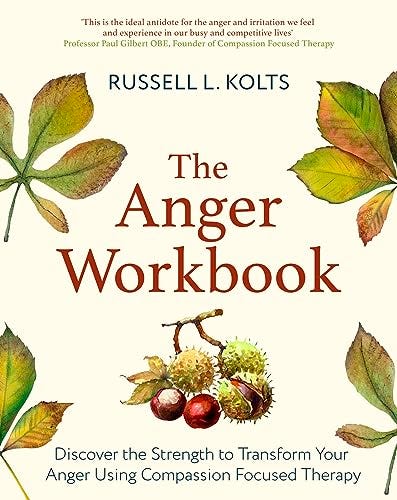In a recent interview, I had the privilege of speaking with Dr. Russell Kolts, a leading researcher and practitioner in Compassion Focused Therapy (CFT) and author of The Compassionate Mind Guide to Managing Your Anger (2012) and The Anger Workbook: Discover the Strength to Transform Your Anger Using Compassion Focused Therapy (2024).
Our conversation delved into the profound impact of compassion in addressing and transforming anger, providing valuable insights for anyone seeking to better understand and manage their emotions.
One of the key takeaways from our discussion was the distinction between perceived strength and true strength:
"What’s stronger—the anger that you use to avoid feelings that are scary and uncomfortable, or the compassion that lets you find ways to feel it all?" Dr Russell Kolts on Compassion in a T-Shirt.
This powerful question challenges the conventional view that anger equates to strength, highlighting instead the resilience found in compassion.
Having said that, anger is also not all bad. It has its roots in evolutionarily adaptive strategies to survive. Anger can be seen as part of the threat system, such that if our primitive ancestors felt threatened then they might have responded with anger, aggression and an effort to fight off the threat. Equally, if their pursuit of goals was blocked—for example, they were trying to pursue and acquire food and someone else got in their way or prevented them from feeding their family—then they might use anger and aggression to fight off the competitor.
But in the modern world, anger, or at least the expression of anger through aggression or violence, is not so adaptive, and causes more harm than good.
“Anger is a great signal, but not a great strategy.” Dr Russell Kolts on Compassion in a T-Shirt.
Dr. Kolts also emphasised the cultural and social dimensions of anger, particularly among men.
"We’re seeing escalating problems with male anger in a lot of cultures… the way we socialise boys hasn’t caught up. Our expectations of men are beginning to change, but the way we teach boys to be men hasn’t changed much yet." Dr Russell Kolts on Compassion in a T-Shirt
This disconnect can lead to confusion and frustration, contributing to unhealthy expressions of anger, quite possibly through a sense of social threat and activation of the threat system.
Importantly, Dr. Kolts pointed out the role of compassionate social influence in reducing violence and fostering emotional health. Dr Kolts urged men to actively challenge harmful behaviours and support healthier, more respectful interactions.
"Good men need to step up.” Dr Russell Kolts on Compassion in a T-Shirt.
Through these insights, Dr. Kolts makes it clear that compassion isn’t just a feel-good concept—it’s a powerful tool for managing anger and promoting mental well-being. By embracing compassion, we can create a safer, more supportive environment for ourselves and others, fostering true strength and resilience.
For more from Dr Kolts and many other wonderful guests, go to Compassion in a T-Shirt. Learn how to bring compassion and self-compassion into your daily life!
If you would like to watch my conversation with Dr Kolts on Compassion in a T-Shirt, click the link below!




